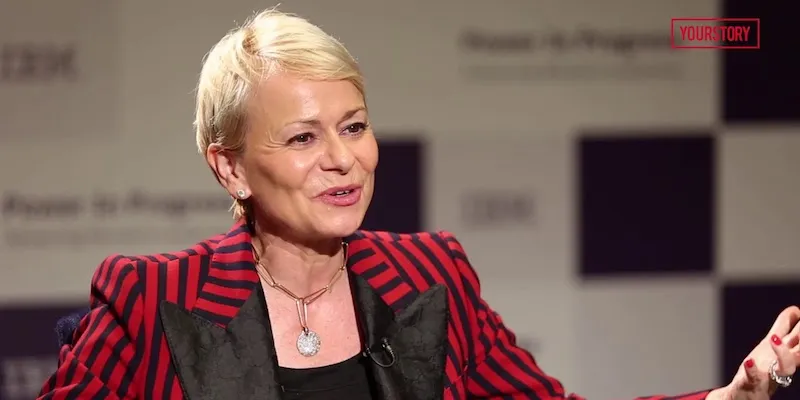True Power in Progress only comes when there is real diversity and inclusion
When Michelle Peluso, Senior Vice President and Chief Marketing Officer, IBM, described the past 10 years as an exhausting decade for women, she summed up all the advice that women typically receive at the work place about their careers. Everything from what to do to get ahead in their careers to whether or not to discuss their families and how to dress, they’ve heard it all. The time had come, she said, to change the narrative and to do so quickly.
Speaking at IBM’s Power in Progress gathering in Bengaluru on May 30, Michelle emphasised the need to move beyond discussing diversity and creating a culture of inclusion, because change and growth only occur when everyone, regardless of gender, sexuality, ability, or age, is given the same opportunities and encouragement to grow.
The message was underscored by Harriet Green, Chairman and CEO, IBM Asia Pacific, who pointed out in a spirited keynote talk that the main issue was to discuss how to boost the number of women in leadership roles and 'build a brighter tech future based on equality'.
She said, “India is also home to the largest number of coders in the world, and that these are the people who are shaping the future…it is important that it be done by both men and women, because diversity really matters, both ethically and economically.”
Harriet shared statistics about how the most racially and ethnically diverse companies were 35 percent more likely to generate returns over the industry average, while companies that had greater gender diversity were 15 percent more likely to outperform their peers. So diversity, in fact, is good for business.
Of course, that’s easier said than done.

Engineering bias out of our systems at work and in life
“We are facing historical bias in our communities, in our corporations, and in our education system, in fact, in society in general. We are trying to change that culture, and it is a hard thing to do,” admitted Harriet. One way to erase these biases was to leverage data. Frequently lauded as one of the biggest game-changers of our time, “Data has no gender and no agenda. Data does not lie, it does not discriminate or cling to the powers of the past,” she said.
Harriet believes that with the right datasets, we can engineer bias out of many of the systems in our personal and professional lives, and that would truly happen when the people who wrote the code were a diverse group of individuals. The idea was reiterated during the panel discussion by Dr Tapati Bandhopadhyay, General Manager and Global Practice Head, Wipro HOLMES AI and Automation Ecosystem, who said they were working on unbiasing not just data but also algorithms.
Bias was also the focus of the chat between Deb Bub, Vice President and Chief Leadership, Learning and Inclusion Officer at IBM, and Vani Kola, Managing Director at Kalaari Capital.
“It's not uncommon for women to be counselled to put their head down or ignore sexism when they face it. Inclusion can only be truly realized when both men and women challenge their own internal biases,” Vani said. As such, it was important that the values of inclusion are not limited to the workplace but become ingrained in the way we live our lives.
How corporate India fares
Joining Tapati on the panel chaired by Harriet were Avani Davda, Managing Director at Godrej Nature’s Basket; Tia Silas, Vice President, Global Chief Diversity and Inclusion Officer, IBM; and Shradha Sharma, Founder and CEO, YourStory Media.
Avani shared that at Godrej, what inspired her was not just the women from the Godrej family, who were successfully running the company, but also Chairman Adi Godrej, who was fostering a culture of inclusion with policies that supported women.
Shradha said that more than half the employees at YourStory were women, and they were not afraid to be themselves. “What we do is inspiring, and our job is to listen with love and without judgement. I am not a man and therefore don’t believe in one-upmanship. I want my ship to be equal, where we appreciate every story.”
Tia shared her observations on IBM fostering women’s empowerment saying, “With so many women in top leadership positions, it created an environment where inclusion is a strategic priority. It does not support the business, it is the business. And that comes from Ginni (Rometty, Chairman and CEO, IBM). Her language is such that we know it’s an integral part of the business.”
Earlier in the evening, Karan Bajwa, Managing Director, IBM India, talked about how the company was committed to taking forward the conversation about advancing women in leadership positions.
“We made a commitment earlier this year when our President and CEO Ginni Rometty was in town for an event about empowering women leaders to continue this conversation, and here we are with the second in the series about empowering women leaders.” Pointing out that this was a core value at IBM for over 100 years, he shared that the company had been awarded the 2018 Catalyst Award for leadership in building a workplace that values diversity and inclusion for the fourth straight year – an unmatched number of times.








